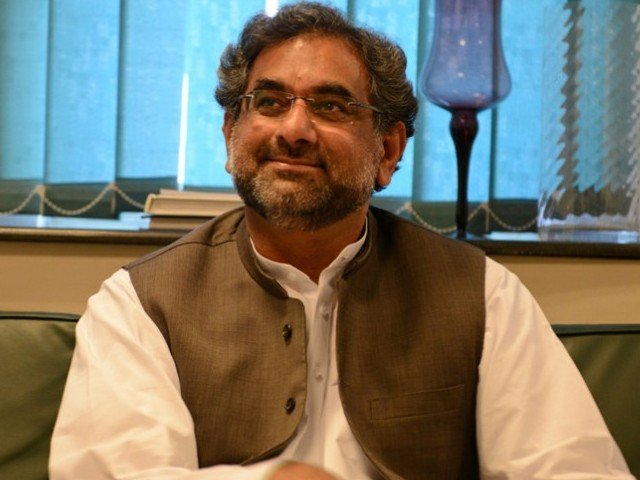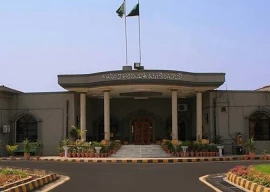
An accountability court here on Thursday rejected the National Accountability Bureau’s (NAB) request for issuing arrest warrant for former prime minister Shahid Khaqan Abbasi over his foreign travel without the court’s permission.
During hearing of the liquefied natural gas (LNG) reference filed against Abbasi and others by NAB, Accountability Judge Muhammad Azam Khan granted one-day exemption to the former prime minister on the request of the defence lawyer.
Much of the day’s proceedings in the reference on Thursday were consumed by the arguments over Abbasi’s foreign travel. The judge inquired from Abbasi’s lawyer Barrister Zafarullah whether or not the accused needed the court’s permission to go abroad.
The judge pointed out that the trial was going on against the accused, while his name was included in the Exit Control List (ECL) “What does the law say about this?” the judge asked the lawyer. The lawyer replied that his client was allowed to travel by the federal government.
The barrister informed the court that the government allowed one-time removal of the name of Abbasi from the ECL. Responding to another court query, the defence lawyer informed that the federal government had allowed the former prime minister to leave the country for 15 days.
The court also asked why the interior ministry allowed the accused to go abroad without the court’s permission. Barrister Zafarullah replied that Abbasi’s name was removed from the ECL after approval from the relevant cabinet committee.
NAB Prosecutor Usman Mirza, requested for the issuance of Abbasi’s warrant for travelling abroad without the permission of the court. Later, the judge asked the defence lawyer to present the government’s permission letter in the court.
The hearing resumed after a break, when Barrister Zafarullah presented the government’s permit and other documents of Abbasi’s travel. He argued in the court that Article 15 of the Constitution gives every human being the basic right to freedom of movement.
He further argued that only the prime minister and the federal government could put names in the ECL. Barrister Zafarullah added that it was also the federal government’s prerogative to allow anyone to go abroad.
“The federal government has the power to add or remove names from the ECL,” he told the court. He pointed out that Abbasi was not in Pakistan when his name was put in the no-fly list. He added that the former prime minister returned to the country despite being placed on the ECL.
Barrister Zafarullah, citing various court rulings, regarding former president Pervez Musharraf and former prime minister Raja Pervez Ashraf, said that under the law, any accused could travel inside or outside the country, if permitted.
He further said that the federal government had not imposed any conditions for Abbasi’s travel, adding that the government was not even obliged to seek permission from the court. He requested the court to grant one-day exemption to Abbasi from personal appearance in the court.
Opposing the exemption, the NAB prosecutor said that the previous court decisions were not applicable in this case. He added that the request from the defence side did not carry any supporting documents with it.
Mirza said that a decision had already been made by the accused to go abroad. He mentioned that such news were circulating for 3 to 4 weeks. In the meantime, the prosecutor said, the defence side could approach the court for its permission but it did not do so.
Mirza argued that according to a Supreme Court decision, if a person becomes disabled and could not walk only them, a lawyer could represent before the court. Otherwise, for any relief, the petitioner had to appear in court, personally. He requested the court to reject the exemption plea.
After hearing both sides, the court reserved its ruling on the matter and granted the request for exemption, while rejecting the NAB’s request for a warrant. Later, the judged adjourned further hearing of the reference till February 15.
During the hearing, the defence lawyers complained that he had not received the copies of the reference, on which the copies of the reference were provided to the accused and their lawyers in the court.


1725612926-0/Tribune-Pic-(8)1725612926-0-165x106.webp)








1725254039-0/Untitled-design-(24)1725254039-0-270x192.webp)






COMMENTS
Comments are moderated and generally will be posted if they are on-topic and not abusive.
For more information, please see our Comments FAQ